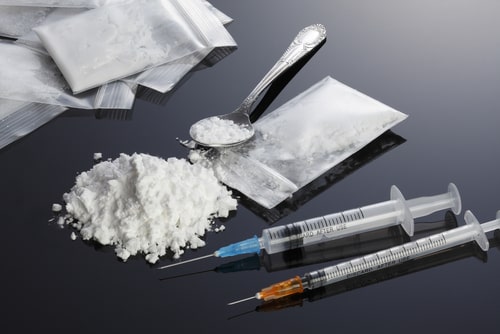How Serious is a Charge for Selling Drugs in Texas?
 In Texas, drug-related offenses are treated with seriousness, and charges for selling drugs can have severe consequences. Understanding the nature of these charges is crucial for anyone facing such allegations. A Texas lawyer can help you learn more in-depth what these charges could mean for you, specifically based on your circumstances.
In Texas, drug-related offenses are treated with seriousness, and charges for selling drugs can have severe consequences. Understanding the nature of these charges is crucial for anyone facing such allegations. A Texas lawyer can help you learn more in-depth what these charges could mean for you, specifically based on your circumstances.
Classification of Drug Offenses
Texas categorizes controlled substances into penalty groups, with Group 1 being the most severe and Group 4 the least. Common drugs in each group include:
- Group 1: Cocaine, heroin, methamphetamine
- Group 2: Ecstasy, PCP
- Group 3: Certain prescription drugs like Valium and Xanax
- Group 4: Compounds containing limited quantities of narcotics
The severity of the charge depends on the type and amount of drug involved.
Penalties for Drug Sale Offenses
Selling drugs in Texas can result in felony charges, which carry significant penalties:
- State Jail Felony: For smaller amounts of less dangerous drugs. Punishable by 180 days to 2 years in state jail and a fine up to $10,000.
- Third-Degree Felony: Often applies to larger amounts of Group 3 or 4 drugs. Carries 2-10 years in prison and up to a $10,000 fine.
- Second-Degree Felony: Typically for selling larger quantities of Group 1 or 2 drugs. Punishment includes a sentence of 2-20 years behind bars and a maximum fine of $10,000.
- First-Degree Felony: Reserved for large quantities of dangerous drugs. Penalties range from 5-99 years in prison and up to a $250,000 fine.
In some cases, life imprisonment is possible for repeat offenders or those selling large quantities of drugs.
Aggravating Factors
Certain circumstances can significantly increase the severity of charges and penalties in drug-selling cases. Selling drugs to minors is viewed as particularly egregious and can result in enhanced sentences. Similarly, conducting drug transactions in designated drug-free zones, such as schools or playgrounds, can lead to more severe charges. The law also takes a harsh stance on individuals who use minors to sell drugs, recognizing the exploitation of vulnerable youth.
Possessing firearms during drug transactions can also lead to elevated charges, as it is seen as an indicator of potential violence. These aggravating factors can push charges into higher felony classifications or add substantial prison time to sentences, reflecting the state’s effort to protect vulnerable populations and maintain public safety.
Collateral Consequences
Beyond incarceration and fines, a drug sale conviction in Texas can have far-reaching impacts:
- Loss of professional licenses
- Difficulty finding employment
- Ineligibility for federal student loans
- Loss of voting rights (while incarcerated)
- Immigration consequences for non-citizens
- Difficulty renting housing
- Strain on personal relationships
Defense Strategies
While each case presents unique circumstances, several common defense strategies can be employed in drug-selling cases. Attorneys often begin by scrutinizing the legality of the search and seizure that led to the arrest, as any constitutional violations could result in the suppression of evidence. They may also question the chain of custody for evidence, ensuring proper procedures were followed at every step.
In some cases, proving a lack of knowledge or intent to sell can be a viable defense, particularly if the quantity of drugs involved is relatively small. Exploring potential entrapment defenses is another avenue, especially if law enforcement’s tactics are overly aggressive or manipulative. Lawyers often negotiate with prosecutors to secure plea deals for reduced charges when appropriate.
Apart from these strategies, Texas understands the worth of rehabilitation in addressing drug-related offenses. Depending on the specifics of the case, alternative sentencing options may be available. These can include participation in drug court programs, mandatory substance abuse treatment, probation with required counseling, or community service. Such alternatives are often considered for first-time offenders or those facing less severe charges, reflecting a balance between punishment and rehabilitation in the Texas justice system.
Rehabilitation and Alternative Sentencing
Texas recognizes the value of rehabilitation in some drug cases. Depending on the circumstances, alternatives to traditional sentencing might include:
- Drug court programs
- Substance abuse treatment
- Probation with mandatory counseling
- Community service
These options often apply to first-time offenders or those with less severe charges.
Work With a Cooke County, TX Criminal Defense Lawyer
A charge for selling drugs in Texas is a serious matter with potentially life-altering consequences. The severity depends on various factors, including the type and amount of drug, prior offenses, and specific circumstances of the case. A Denton County, TX criminal defense attorney will walk you through the steps as you go through your case. Call Magaña & Van Dyke at 940-382-1976 for a no-obligation, free consultation.






